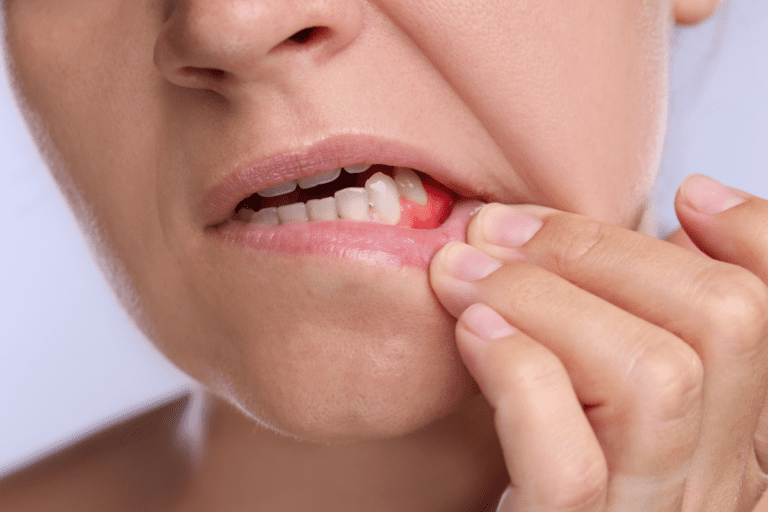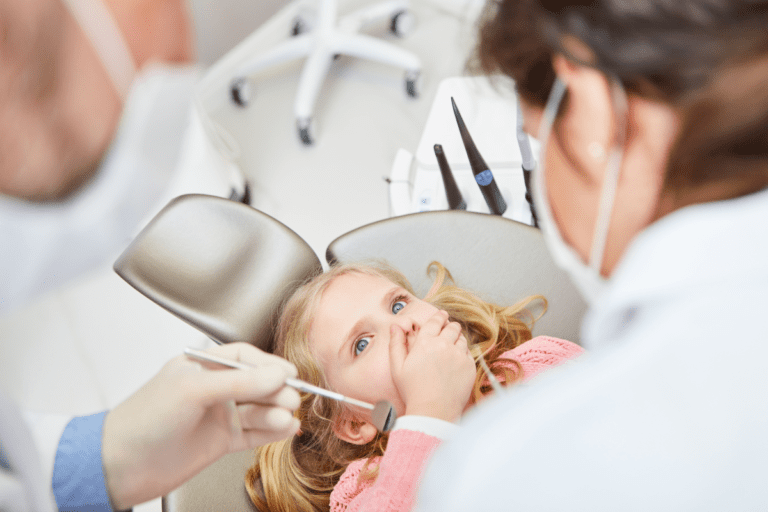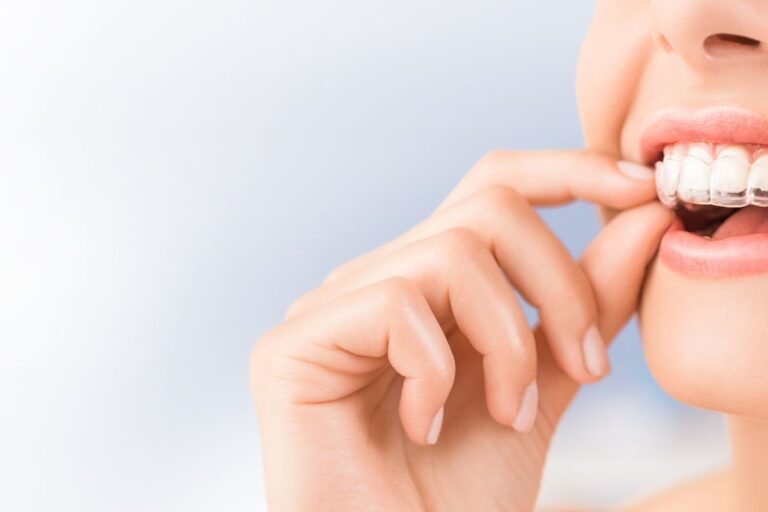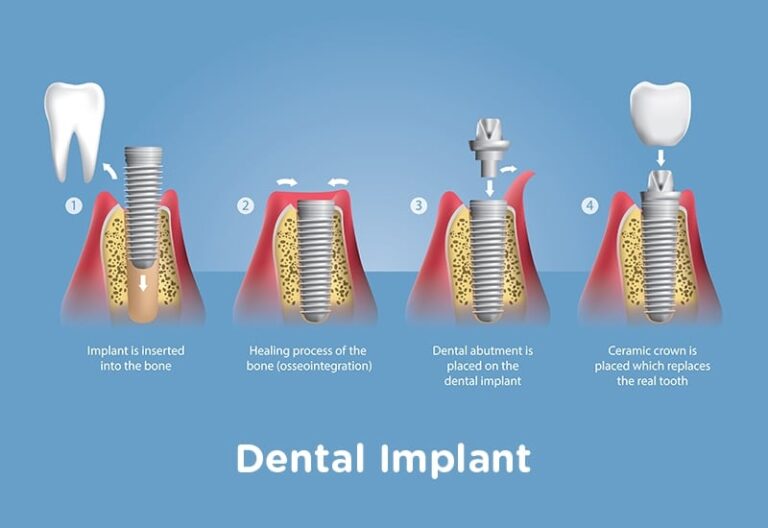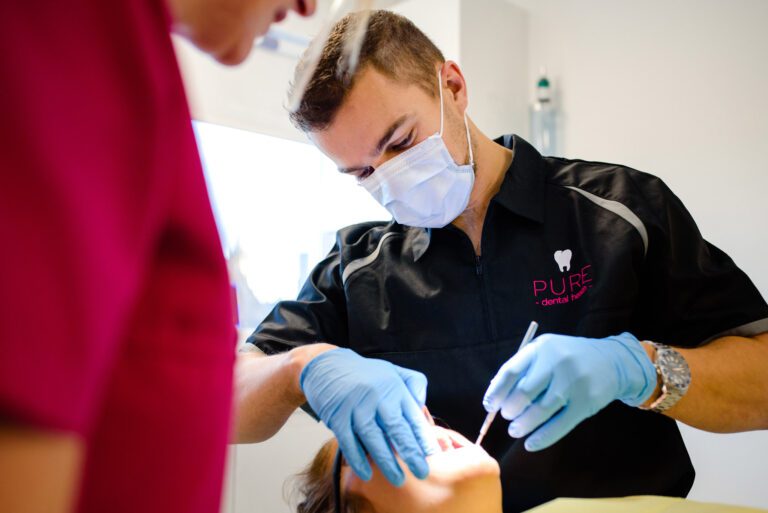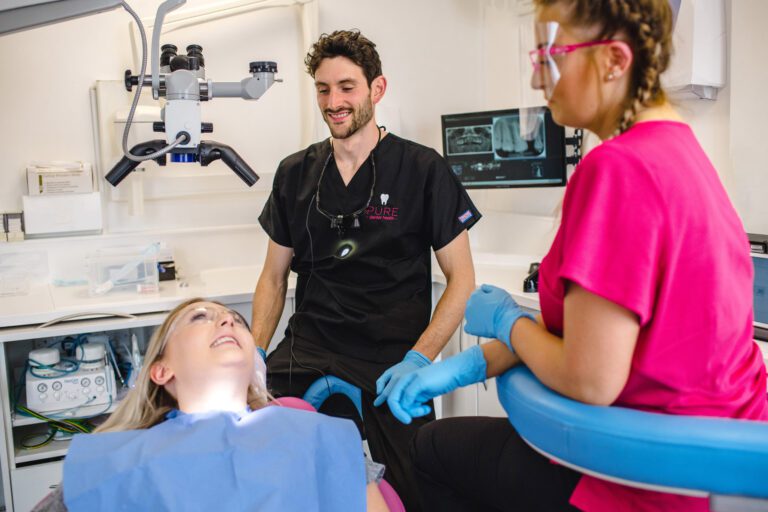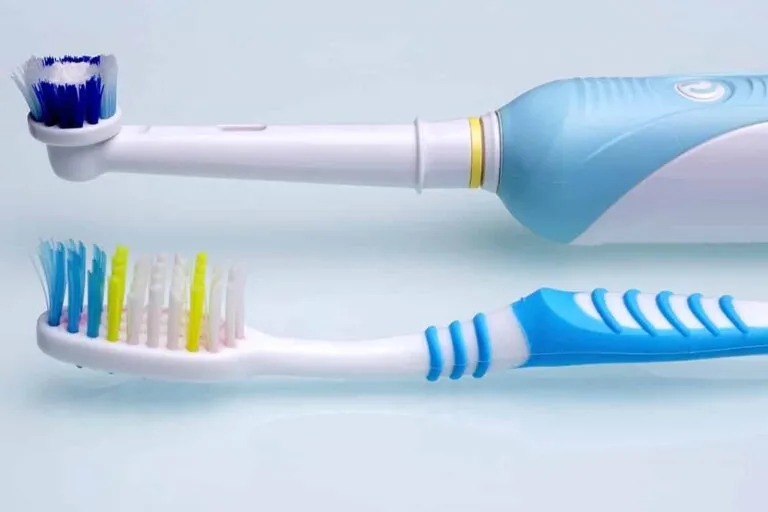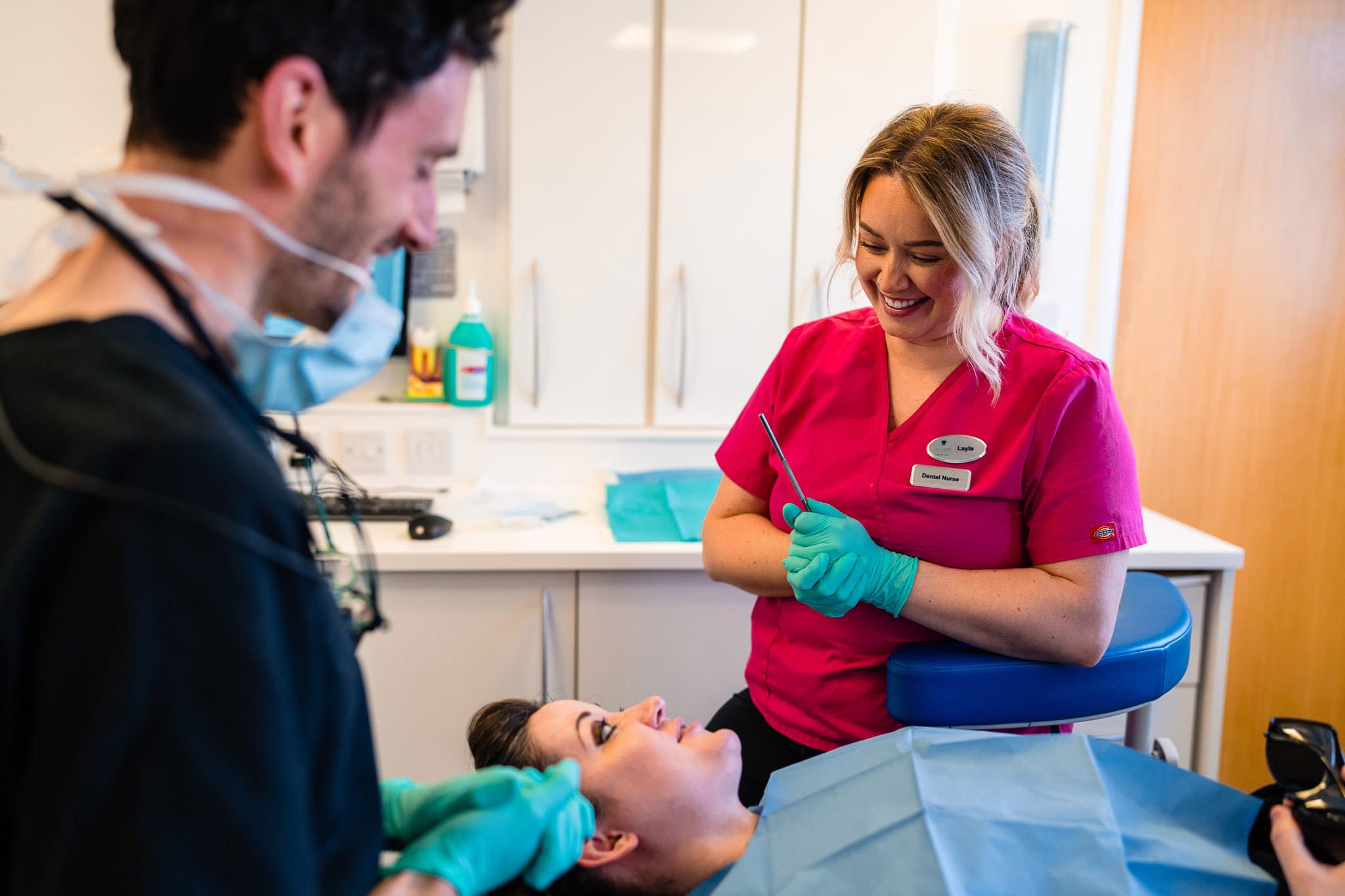What is dental anxiety? It’s a question many of our patients at Pure Dental Health ask. According to statistics from the Oral Health Foundation, almost half of UK adults have a fear of the dentist, with 12% of these suffering from an extreme dental anxiety or phobia.
Are you scared to go to the dentist? Is your heart racing, even just reading about dental phobia? In this blog, we’ll explore what dental anxiety is, why you might experience it and (most importantly) how our caring team here in Truro can help you overcome dental anxiety once and for all.

Introduction: Understanding What Dental Anxiety Really Is
Dental anxiety (the fear or nervousness that some people experience before or during dental visits) affects millions of people worldwide and can range from mild butterflies to severe panic.
Dental anxiety is incredibly common. Whether you have just a few minor worries about your routine check-up or you’re feeling overwhelmed at the prospect of upcoming treatment, we completely understand and are here for you. We have several ways we can make your visit to our Truro practice much easier on your nerves, and with the right support, you can join the 85% of dental patients who feel comfortable in the chair.
Why Dental Anxiety Happens
Understanding where your dental anxiety comes from is actually the first step to addressing it and overcoming your phobia of the dentist. For some people, dental anxiety stems from a single scary experience, while for others, it’s built up over years of avoidance or exposure to distressing situations.
The good news? Once we know what’s triggering your nerves, our team can work with you to make your dental care feel safe and manageable. Every patient’s journey is different, and we take the time to listen and understand your specific concerns.
Past Experiences and Learned Behaviours
If you’ve had a difficult dental visit in the past (perhaps a dentist who didn’t listen or a frightening/painful experience as a child), that memory can stick with you. Our brains are wired to remember uncomfortable or scary moments, and dental anxiety often develops as a protective response.
Even if nothing traumatic has happened to you personally, dental anxiety can also be learned from family members or friends who’ve shared their own negative dental stories. The good news is that these learned behaviours can be unlearned. When you visit Pure Dental Health and have a positive, pain-free experience, you’re essentially rewriting that story and can overcome dental anxiety for good.
Fear of Pain, Loss of Control or the Unknown
Many people worry about pain during dental treatments, even though modern dentistry is far less uncomfortable than it used to be. But pain isn’t always the main concern-often it’s the feeling of not being in control, or the fear of the unknown.
You’re in the chair, unable to see what’s happening, hearing unfamiliar sounds, and trusting someone else to manage your comfort. That’s a vulnerable position, and it’s completely natural to feel anxious about it.
Some patients worry about what the dentist might find, or feel embarrassed about the state of their teeth. Whatever your specific fear, we want you to know that you’re safe with us. We explain everything we’re doing, we go at your pace, and we always give you ways to signal if you need a break. Your comfort and peace of mind matter just as much as your dental health.
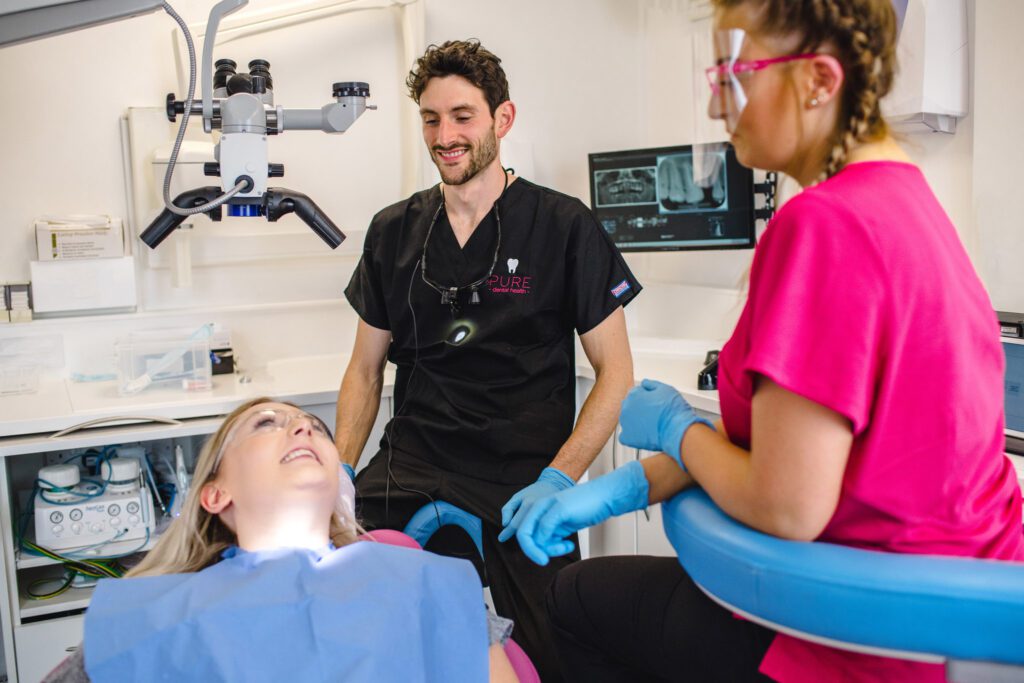
The Importance of Recognising Dental Anxiety
If you don’t address dental anxiety, it can lead to worse oral health outcomes (deferring treatment, more invasive procedures, higher costs) and increased stress for you. Acknowledging “what is dental anxiety” is the first step toward overcoming it.
Signs and Symptoms of Dental Anxiety
Here are things to look out for that may suggest you have dental anxiety:
- Physical tension and muscle stiffness – You might notice your jaw clenching, your shoulders tensing up, or your whole body feeling rigid as your appointment approaches. This physical response is your body’s natural stress reaction.
- Increased heart rate and difficulty breathing – Some patients experience a racing heartbeat, shortness of breath, or a tight feeling in their chest when they think about visiting the dentist. These panic-like symptoms are real and valid.
- Sweating and trembling – Dental anxiety can trigger your body’s fight-or-flight response, leading to cold sweats, shaking hands, or feeling clammy. It’s a sign your nervous system is in overdrive.
- Avoiding and postponing appointments – If you find yourself constantly cancelling, rescheduling, or making excuses not to attend your dental visits, that’s a clear sign of dental anxiety. You might go months or years without seeing a dentist because the anticipation feels too much.
- Sleep disruption – Dental anxiety can keep you awake the night before an appointment, or you might find yourself worrying about upcoming treatment for days in advance. This loss of sleep can make anxiety feel even worse.
- Feeling faint or nauseous – Some anxious patients feel dizzy, lightheaded, or experience a queasy stomach around dental visits. The emotional stress can manifest as physical discomfort.
- Embarrassment or shame – You might feel embarrassed about your teeth, worried about being judged, or ashamed that you’re afraid. These feelings often prevent people from seeking the care they need.
- Difficulty sitting still or feeling restless – Anxiety can make you fidgety, unable to relax in the chair, or feel like you need to escape. This restlessness is your anxiety expressing itself physically.
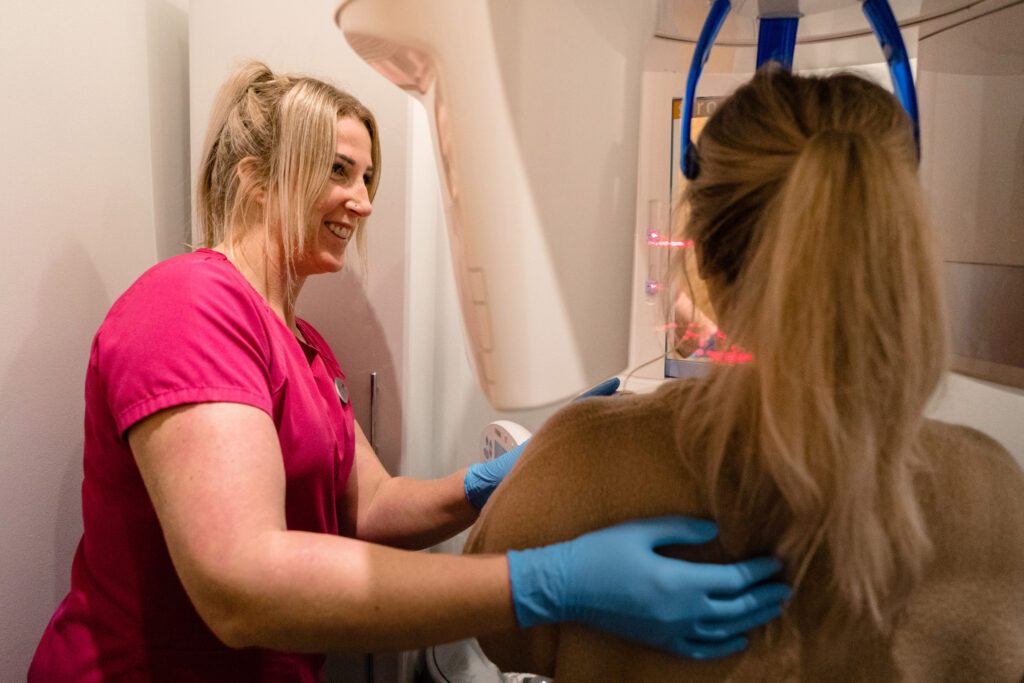
How to Overcome Dental Anxiety: Practical Steps
Overcoming dental anxiety is about taking small, manageable steps that help you feel more in control and supported. Here are practical ways to make your journey to better dental health easier.
Choose the Right Dental Practice That Understands Anxiety
Not all dental practices are the same. Look for a practice, like Pure Dental Health, where the team has experience working with anxious patients and genuinely prioritises your comfort. A good practice will take time to listen, won’t rush you, and will create a calm, welcoming environment. Check reviews, ask for recommendations, and don’t be afraid to call ahead and discuss your anxiety – a supportive practice will take your concerns seriously from the very first conversation.
Start with a Low-Pressure Consultation
You don’t have to jump straight into treatment. Begin with a gentle consultation where you simply meet the team, see the practice, and discuss your concerns with no obligation for procedures. This helps demystify the experience and builds trust. Once you’ve had a positive first visit, subsequent appointments often feel much easier.
Communicate Your Feelings and Concerns
Tell your dentist exactly what makes you nervous. Whether it’s the sounds, the sensation, or the fear of pain, speaking up is essential. Your dentist can adapt their approach, explain what they’re doing step-by-step, and work at a pace that suits you. Many practices also use a hand signal system so you can pause the treatment whenever you need a break. Remember, your dentist wants you to feel comfortable – they can’t help if they don’t know what’s bothering you.
Use Modern Techniques and Comfort Options
Modern dentistry offers many ways to reduce dental anxiety. Ask your practice about options like headphones to block out sounds, numbing gel before injections, or even sedation options for more complex procedures. Some patients find it helpful to bring a trusted friend or family member for support.
At Pure Dental Health, we’re happy to discuss what comfort measures work best for you. Pure Dental is the only dental clinic in Cornwall to offer sedation with a consultant anesthetist. From your first conversation with us to the completion of your treatment, our priority is your comfort and confidence.

Conclusion: Overcoming Dental Anxiety
Dental anxiety is real and common, but it doesn’t have to dictate your dental experiences. By understanding what is dental anxiety, recognising your feelings, communicating with caring professionals, using modern treatments and taking gradual steps, you can overcome the fear and return to regular dental care with confidence. Let us help you take that first step.
The team at Pure Dental Health in Truro understands exactly what you’re going through, and we’re committed to helping you feel safe, heard, and supported at every visit. Don’t let anxiety cost you your oral health or your peace of mind. No matter your level of dental anxiety disorder, we tailor every aspect of our care to make your dental journey as gentle, calm, and stress-free as possible.
Get in touch with us today to book a low-pressure consultation and take that first step towards a healthier, anxiety-free smile. We’re here for you.
Book a FREE treatment advisor consultationFAQs: Common Questions About Dental Anxiety
Is dental anxiety common?
Yes, very common. Dental anxiety affects millions of people worldwide and is one of the most common reasons people avoid dental care. Studies show that around 15% of people experience severe dental anxiety, with many more experiencing mild to moderate nervousness. You’re definitely not alone, and practices like Pure Dental Health see anxious patients every day.
Can dental anxiety be cured?
While “cured” might be too strong a word, dental anxiety can absolutely be managed and significantly reduced. With the right support, positive experiences at the dentist, and practical coping strategies, many people find their anxiety lessens considerably over time. Building trust with a caring dental practice is often the key to overcoming it.
What’s the difference between dental anxiety and dental phobia?
Dental anxiety is nervousness or worry about dental visits, while dental phobia is a more intense, irrational fear that can lead to complete avoidance of dental care. Phobia sufferers may experience panic attacks at the thought of the dentist. Both are treatable, but phobias may require additional support such as cognitive behavioural therapy or sedation options.
How can I manage dental anxiety without sedation?
There are many non-sedative options: communicating clearly with your dentist, using hand signals to pause treatment, listening to music or podcasts, practicing breathing exercises, and bringing a trusted companion. Starting with a consultation rather than jumping into treatment can also help. At Pure Dental Health in Truro, we work with you to find the comfort measures that work best.
What is dental sedation and is it safe?
Dental sedation ranges from mild (breathing in nitrous oxide, or “laughing gas”) to deeper options. It helps you relax during treatment while remaining conscious and aware. Modern sedation is very safe when administered by trained professionals. If you’re interested in sedation options, discuss this with your dentist to see if it’s right for you.
Should I tell my dentist about my dental anxiety?
Absolutely. Telling your dentist about your anxiety is crucial. It allows them to adapt their approach, go at your pace, and use comfort measures that help. Dentists are trained to work with anxious patients, and they genuinely want you to feel comfortable. Keeping it hidden only makes the experience harder for you.
Why should I choose Pure Dental Health if I have dental anxiety?
Our team at Pure Dental Health in Truro specialises in helping anxious patients feel safe and supported. We listen, we explain everything, and we never rush. We offer a range of comfort options and are happy to start with a low-pressure consultation so you can get to know us first.

